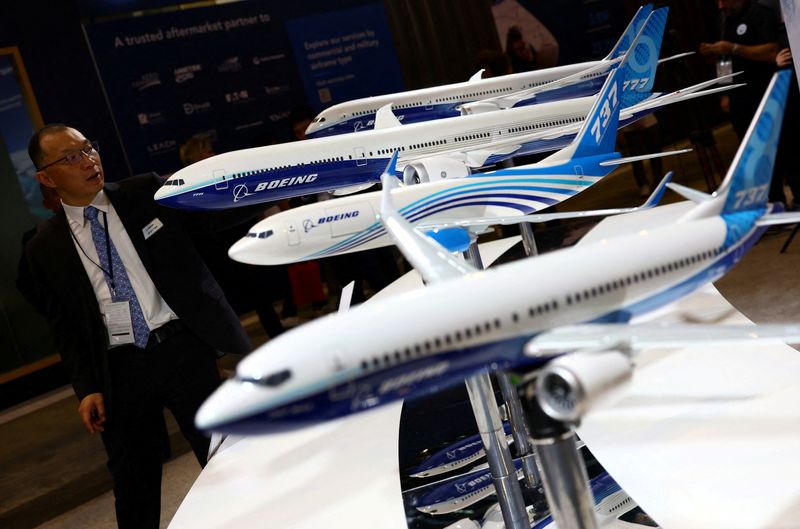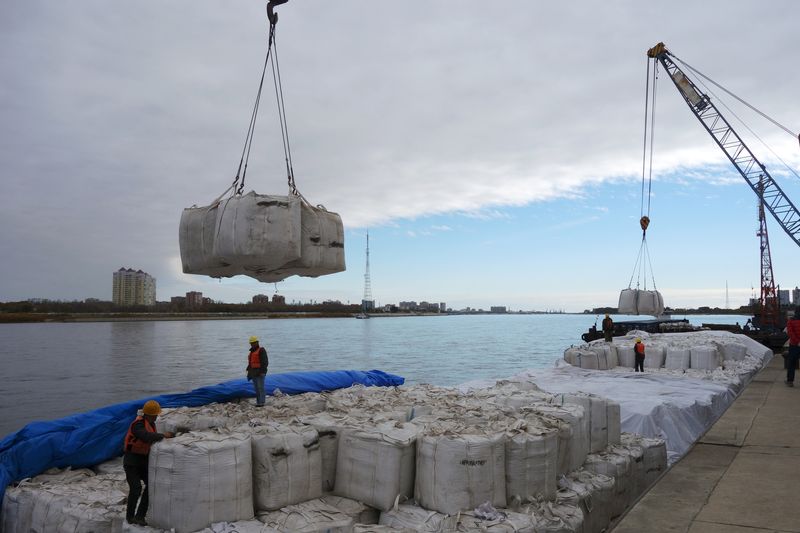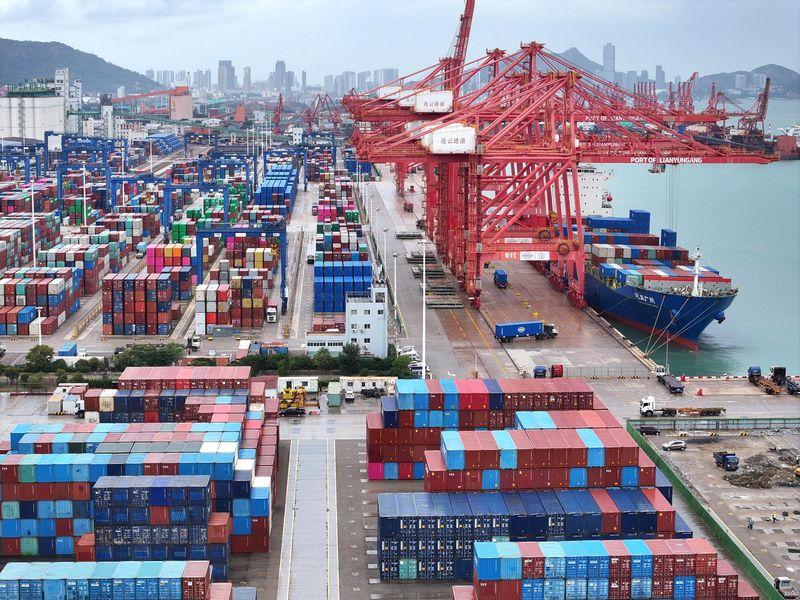
By Tim Hepher, Joanna Plucinska and Padraic Halpin
DUBLIN (Reuters) – Financiers and lessors who make the global air travel industry tick gather for an annual meeting in Dublin on Monday, buoyed by strong lease rates and relatively stable oil prices but facing uncertainty over jet shortages and trade tensions.
Ireland is home to the worldwide aircraft leasing industry, which controls about half the world’s airline fleet, and the Airline Economics gathering provides an early chance each year to monitor economic and trade risks around the globe.
Leasing companies have seen rentals and resale values for jetliners rise as airlines try to meet new demand at the same time as planemakers are struggling to recover from the COVID-19 pandemic.
For now, that means good profits for lessors and many airlines, since shortages push up demand and fares. But there are concerns over access to efficient new aircraft as supply chains lack parts and labour. Older second-hand planes have been in strong demand to fill the gap.
“The main question for the industry is the speed at which manufacturers will be able to ramp up deliveries. That will determine a lot of other things,” said independent aviation adviser Bertrand Grabowski.
He said lease rates had started to plateau with airlines increasingly unwilling to add capacity at any cost.
Delegates are split on how long the shortage will last.
“Several lessors and observers think the market can return to an excess of capacity after three years or so,” Grabowski said. Others believe the removal of some 4,000 jets left unbuilt during the pandemic will keep airlines short of jets for longer.
Airbus is targeting production of 75 A320-family jets a month in 2027, having pushed back the goal repeatedly due to supply woes. Boeing (NYSE:BA) is edging back towards 38 of the competing 737 MAX a month – an interim ceiling imposed by regulators following the blow-out of a door plug on a 737 MAX a year ago.
TARIFF TALK
Many of the roughly 3,000 delegates heading to the Irish capital will also be weighing up the potential impact of the change of power in the United States, a week before President-elect Donald Trump is sworn in for a second term.
Trump has promised to impose sweeping tariffs, which some analysts think could affect supply chains of aerospace and other industries while dampening air cargo demand.
The head of the world’s second-largest lessor Avolon, Andy Cronin, said any impact on supply chains would be “unhelpful” at a time when airplane factories are struggling to meet demand. Avolon, a major customer of both Boeing and Airbus, has said the world’s dominant planemakers will continue to face capacity constraints for at least a decade.
“Any increased costs or challenges that require reorienting … supply chains will be unhelpful to the recovery of stability in that system,” Cronin told Reuters.
The airline industry has seen mixed results in the last year, hampered by the delivery delays, slow engine repairs, security issues in the Middle East and growing labour disputes.
In December, airlines body IATA predicted record passenger numbers in 2025, with revenues set to reach more than a trillion dollars. But a recovery of travel from China and by business travellers has been slower than expected.
Also under the microscope, Grabowski said, is the impact of a surging U.S. dollar on airlines that have to pay for fuel and planes in dollars but get revenues in fragile local currencies.
MSCI’s emerging market currencies index is trading close to six-month lows. In India, the world’s fastest-growing air travel market, the rupee hit a record low on Friday.



